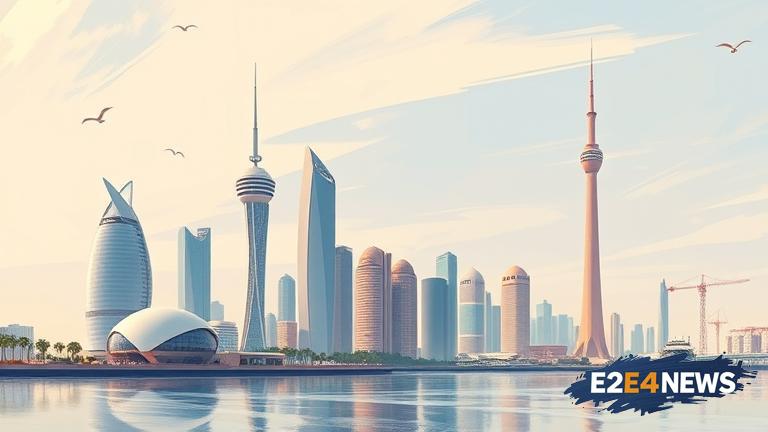Bahrain’s economic diversification efforts have been gaining momentum in recent years, with the country’s non-oil sector experiencing significant growth. The government has been actively promoting economic diversification as a key strategy to reduce the country’s dependence on oil exports. This has led to the development of various sectors such as tourism, finance, and logistics. The tourism sector, in particular, has seen a significant boost, with the number of tourists visiting the country increasing by 12% in the past year. The government has also been investing heavily in infrastructure development, with several major projects currently underway. These include the development of a new international airport, a state-of-the-art logistics hub, and a number of new hotels and resorts. The finance sector has also been growing rapidly, with several major banks and financial institutions setting up operations in the country. Bahrain’s strategic location, situated at the crossroads of the Middle East, makes it an attractive location for businesses looking to access the region’s growing markets. The country’s business-friendly environment, with its low taxes and minimal bureaucracy, has also been a major draw for investors. In addition, Bahrain has a highly skilled and educated workforce, with a strong emphasis on innovation and entrepreneurship. The government has also been actively promoting the development of small and medium-sized enterprises (SMEs), which are seen as a key driver of economic growth. To support the growth of SMEs, the government has established a number of initiatives, including the Bahrain Development Bank and the Bahrain Entrepreneurship Organization. These initiatives provide financing, training, and mentorship to entrepreneurs and small business owners. The country’s logistics sector has also been growing rapidly, with several major logistics companies setting up operations in the country. Bahrain’s strategic location, with its proximity to the Saudi Arabian market, makes it an ideal location for logistics and distribution companies. The government has also been investing in the development of a number of free zones, which offer a range of incentives and benefits to businesses that set up operations in these areas. These free zones have been designed to support the growth of specific sectors, such as technology and manufacturing. Overall, Bahrain’s economic diversification efforts are yielding positive results, with the country’s non-oil sector experiencing significant growth. The government’s efforts to promote economic diversification, invest in infrastructure development, and support the growth of SMEs are all contributing to the country’s economic success. As the country continues to develop and grow, it is likely that Bahrain will become an increasingly important player in the regional economy. With its highly skilled workforce, business-friendly environment, and strategic location, Bahrain is well-positioned to attract investors and businesses from around the world. The country’s economic diversification efforts are also expected to have a positive impact on the environment, as the country reduces its dependence on oil exports and develops more sustainable industries. In conclusion, Bahrain’s economic diversification efforts are a key factor in the country’s economic success, and are expected to continue to drive growth and development in the years to come. The government’s commitment to promoting economic diversification, investing in infrastructure development, and supporting the growth of SMEs is likely to have a lasting impact on the country’s economy. As the country continues to grow and develop, it is likely that Bahrain will become an increasingly important player in the regional economy, and a major hub for business and investment in the Middle East.
